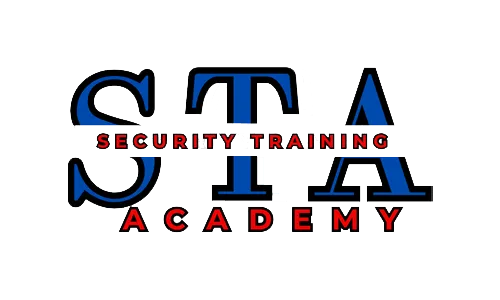
Why Employers Should Hire Security Guards During Termination or Employee Dismissals
Why Employers Should Hire Security Guards During Termination or Employee Dismissals
Terminating an employee is one of the most difficult tasks any employer must face. Whether the decision is due to poor performance, downsizing, policy violations, or misconduct, the reality is the same: firing someone can be unpredictable and emotionally charged. What many employers fail to anticipate is the potential for confrontation, disruption, or even violence during or after the termination process.
This is where hiring a professional security guard becomes not just a precaution, but a necessary safety protocol.
In today’s workplace climate—where employee stress, personal issues, and workplace violence incidents are increasingly common—security during terminations is no longer optional. It’s a proactive, protective strategy that preserves safety, professionalism, and peace of mind for everyone involved.
Let’s explore the top reasons why hiring a security guard during employee terminations is essential, and how it benefits both the company and its workforce.
1. Workplace Violence is a Real Threat
According to the U.S. Occupational Safety and Health Administration (OSHA), nearly 2 million American workers report having been victims of workplace violence each year. Moreover, workplace homicides remain a leading cause of occupational deaths.
Involuntary termination is one of the leading triggers of such incidents. When an employee is dismissed, especially under tense or personal circumstances, emotions can escalate quickly. Anger, humiliation, and desperation may boil over, and without proper safeguards, this can lead to verbal abuse, property damage, or even physical assault.
Security guards are trained to manage escalating behavior, identify warning signs of aggression, and act swiftly to de-escalate or restrain a potentially violent person if necessary. Their presence alone often discourages impulsive or aggressive reactions.
2. Deter Theft, Sabotage, or Retaliation
When employees are let go—especially those with access to confidential systems, proprietary data, or expensive equipment—there’s a risk of sabotage, data theft, or destruction of property.
In some cases, terminated employees have deleted files, damaged equipment, or attempted to steal company property in a last act of retaliation. Others have been known to access confidential files or disrupt operations.
A security guard ensures that:
The terminated employee does not leave with unauthorized company property
Sensitive areas like server rooms, executive offices, or HR files are protected
The employee exits calmly without disruption
Guards can even escort the individual to retrieve personal belongings under supervision, preventing any potential damage or inappropriate behavior.
3. Provides Safety and Peace of Mind for HR and Management
Terminations are stressful not just for the dismissed employee, but also for the human resources team and management. HR professionals often have to sit through uncomfortable or confrontational discussions, which can lead to personal anxiety and safety concerns.
Having a security guard on-site sends a clear message: “Your safety is a priority.”
This presence:
Calms fears of being alone with an unpredictable employee
Allows HR to focus on the conversation, knowing someone is there to intervene if needed
Reduces liability and legal exposure if an incident were to occur
4. Shows Professionalism and Preparedness
While some may see hiring security during termination as an overreaction, it’s actually a sign of professional risk management. It demonstrates that the company takes its duty of care seriously and prioritizes a safe, respectful workplace environment.
Rather than escalating tensions, a calm and discreet security presence can:
De-escalate volatile situations
Ensure everyone remains respectful and compliant
Support a smooth and dignified exit for the former employee
Professional security officers are trained not just in physical protection, but in maintaining a composed and courteous demeanor, which contributes to a professional termination process.
5. Legal Protection and Liability Reduction
In the unfortunate event of a post-termination incident—whether it’s an assault, a threat, or property damage—the employer could be held liable for failing to take adequate security precautions.
Hiring a security guard can:
Demonstrate due diligence
Strengthen the employer’s legal position
Provide a witness to any events that transpire
Serve as evidence that proper steps were taken to prevent harm
Some businesses also request that security personnel write reports or appear in court should any issues arise after a termination. Having a trained, impartial witness is invaluable in such cases.
6. Prevents Disruptions to Workplace Environment
An angry or emotional termination can disrupt the workflow, alarm other employees, or lead to gossip and fear. If a former employee becomes verbally abusive or aggressive on their way out, the atmosphere of the entire office can change.
Employees may:
Feel unsafe
Distrust management
Become anxious about their own job security
Security guards ensure that the process is quiet, respectful, and contained, protecting the morale and peace of mind of the rest of the staff.
7. Manages Re-Entry Risk
One of the most overlooked aspects of employee termination is what happens after the individual leaves the premises.
Some former employees may try to:
Re-enter the building to confront someone
Harass coworkers
Refuse to return company property
Engage in stalking or threatening behavior
A security guard can:
Monitor building access
Escort the employee off the premises
Watch for their return and notify authorities
Collaborate with local police if necessary
The simple act of being present at an exit point can prevent post-termination retaliation.
8. Supports Sensitive Terminations (e.g., Mass Layoffs or High-Profile Firings)
While not every termination requires a security presence, there are scenarios where it’s absolutely vital:
Mass layoffs: Emotions run high, especially when dozens or hundreds of people are losing their jobs
Executive or leadership termination: These individuals may hold authority, loyalty, or confidential knowledge
Firing someone for misconduct: Harassment, theft, fraud, or workplace violence incidents often involve employees who don’t take well to being removed
In these situations, the stakes are higher and the consequences of not having protection are too great to ignore.
9. Bridges the Gap Before Law Enforcement Is Involved
Most companies don’t want to call the police unless absolutely necessary. Doing so can escalate tensions or cause unnecessary alarm. However, security guards act as a neutral intermediary.
They can:
Monitor the situation
De-escalate before it requires police intervention
Safely restrain a threatening individual
Document everything for future action
If needed, security personnel can alert police at the right time, ensuring the situation is handled responsibly and without panic.
10. Upholds Company Reputation
In today’s digital world, videos go viral in seconds. An angry employee throwing a tantrum or being escorted out by law enforcement can damage a company’s brand and reputation.
A calm, private termination conducted with security present:
Minimizes spectacle
Prevents public drama
Sends a message that the company values professionalism
It also reassures current employees that their employer is capable of handling high-stress scenarios with maturity and care.
Final Thoughts: Safety is a Smart Investment
Employers should never underestimate the emotional and psychological impact that termination has on people. What may seem like a routine HR task can quickly spiral into chaos if not properly managed.
Hiring a trained, professional security guard is not just about safety—it’s about responsibility, risk management, and workplace culture.
By investing in security during terminations, employers show that they value their employees, protect their teams, and take their obligations seriously.
Whether you’re running a small business or a major corporation, security should be part of your termination checklist. Don’t wait until after a dangerous incident to put protocols in place. Be proactive. Be prepared. And keep your workplace safe—for everyone.
Need Termination Security Services?
If your company is considering layoffs or facing a difficult employee dismissal, consider partnering with a professional security agency. We offer discreet, experienced, and certified security officers trained in workplace safety, de-escalation, and employee terminations.
Contact us today to discuss how we can help protect your team and your business during challenging transitions.

We Have Students From All Over Maryland:
Allegany County ,maryland | Anne Arundel County | Baltimore County | Calvert County | Caroline County | Carroll County | Cecil County | Charles County | Dorchester County | Frederick County | Garrett County | Harford County | Howard County |Kent County | Montgomery County | Prince George’s County | Queen Anne’s County | St. Mary’s County | Somerset County | Talbot County | Washington County | Wicomico County | Worcester County

